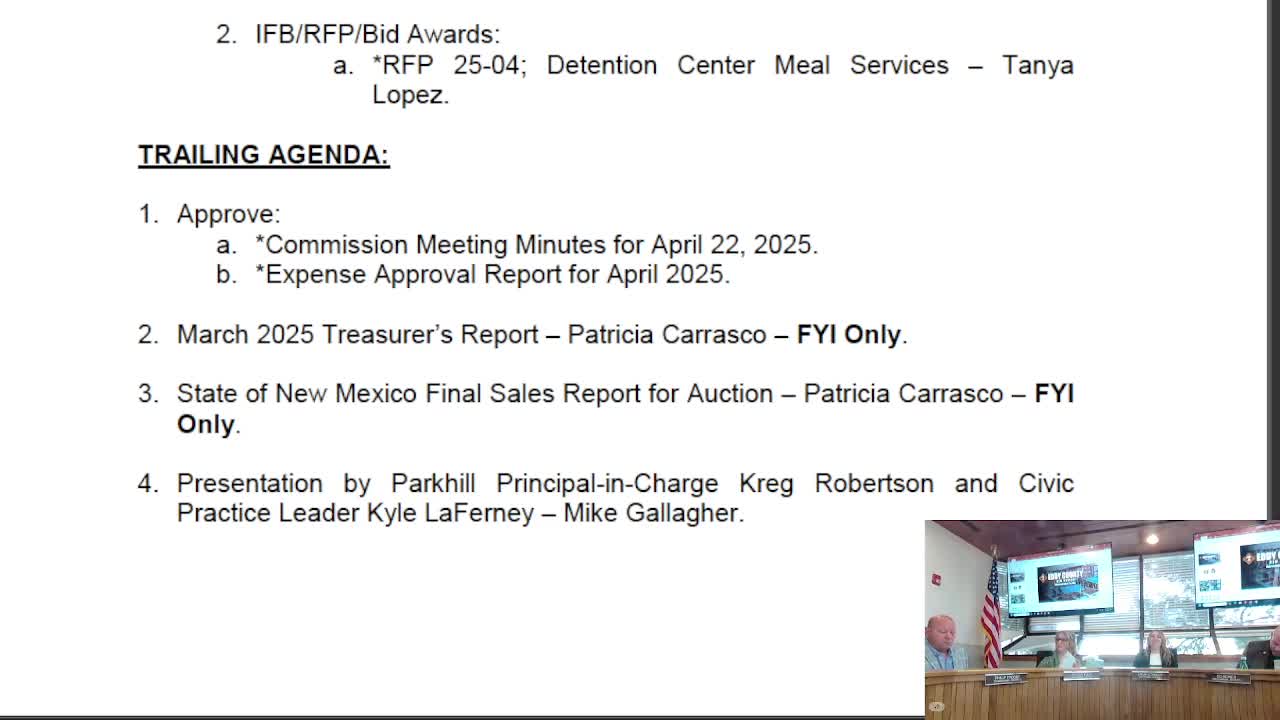County hears Park Hill plan for new administration facility; firm urges early stakeholder engagement
Get AI-powered insights, summaries, and transcripts
Subscribe
Summary
Park Hill presented a multi-step approach and timeline for designing a new Eddy County administration building, urging an advisory committee, early site analysis and user-group programming to guide a multi‑year project.
Park Hill, the architectural firm awarded the county's design services contract, gave a 30‑minute briefing to the Eddy County Commissioner's Court outlining how it would proceed with a proposed administration building project, including discovery, programming, site analysis and a multi‑phase timeline.
Park Hill said early and broad stakeholder engagement would be critical to delivering a facility that serves county operations and the public. The firm recommended forming a small executive committee for decisions and a broader advisory and user‑group process to capture department needs, site tradeoffs and growth trends before entering the design phase.
The presentation laid out the firm’s rationale for a four‑step project approach — discover, define, design and deliver — and illustrated completed projects in other cities as examples of flexible, multi‑use civic facilities. Craig Robertson, Park Hill principal in charge, said the firm’s “mission statement is building community” and that an administrative building could include public facing space, outdoor plazas and multipurpose chambers if the county chose to prioritize those features.
Park Hill civic practice leader Kyle LaFernie described a sequence of stakeholder activities the firm would run: department interviews, design charrettes, facility tours and visioning workshops. LaFernie said those exercises reveal operational adjacencies (which departments need to be next to each other), workplace strategies (shared benches, hoteling, or dedicated offices) and programmatic room lists that drive size and cost estimates.
The firm recommended a small executive committee of roughly four to seven members to make timely design decisions, and larger advisory and user groups for broad input. It told the court that projects of this scale often take about a year of design before construction documents are ready and that construction schedules depend heavily on site conditions and whether work is an addition/renovation or a ground‑up build.
Commissioners asked about committee size, site options and the project schedule. Commissioner Bowen said she supported an advisory committee to maintain institutional knowledge beyond any single commissioners’ term. Park Hill suggested four months for discovery and definition and an additional nine to 12 months to reach a point at which the county could issue construction bids, subject to the court’s desired pace and the selected site’s constraints.
Park Hill also flagged total‑project budgeting as essential. Robertson noted that “soft costs” — furniture, audio/visual, geotechnical surveys and permitting — must be included alongside construction dollars to avoid late surprises in the budget.
Next steps the firm proposed included a kickoff meeting to finalize mission, vision and values; user‑group meetings to validate and refine room‑by‑room needs; site analytics for any sites the court wants studied; and a community engagement plan. Park Hill asked the county to schedule initial meetings before the summer recess to maintain momentum.
The commission did not vote on project authorization at the meeting; Park Hill left the court with a request to meet an executive committee to begin discovery and site analysis.
